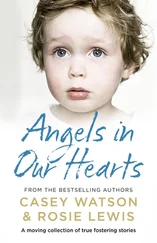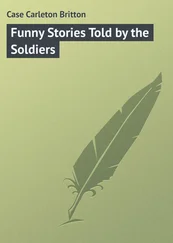“What is going on with you today?” Theresa waved a hand in front of Josephine’s face and Josephine batted it out of the way. “You’re starting to freak me out.”
“I’m sorry. I’m tired — weird dreams. I’m out of it.” She waved a hand dismissively in front of her face. The spiders were doing a polka on her eyeballs. “I should really get going.”
“I wish I had a broken leg so I could have a cast,” one of the girls across the street said to the other. They were sitting in the dirt now, rebuilding the pile they’d just kicked over. “We could draw on it with Magic Markers and people would sign their names and draw hearts on it.”
“I wish I was in a wheelchair,” the other girl said. “Like, just for a week or a month.” She cupped a handful of dirt, letting it pass through her fingers like a sieve.
“What if you were paralyzed from the waist down?” one girl asked, arranging the other girl’s hair in a ponytail. “What if you were paralyzed all over?” the other girl asked back. The high thin pitch of their voices was the music of Josephine’s soul.
“How’s Eli’s father?” Theresa asked. “Eli is such a wonderful guy. You’re lucky.”
“His father is much better,” Josephine said. Eli’s father lived alone out west and a week ago had fallen down the stairs. Eli had gone to stay with him, though he felt awful about missing Josephine’s birthday. “Eli’s a wonderful guy,” Josephine said. And he was —a wonderful, attentive, devoted son and a wonderful, attentive, devoted boyfriend after almost eight years. “I am lucky,” she said, reminding herself out loud.
“I’ll make sure you have a terrific birthday,” Theresa said. “Richmond and I throw great parties.”
That’s what Josephine was afraid of. She couldn’t think of anything worse than a house filled with relative strangers, one of whom might or might not be wielding a knife, serrated or not. But Theresa was a big believer in quantity over quality. She’d insisted on the party.
“Don’t go too wild,” Josephine said. “It’s not as though I’m turning a significant age. I’m fortysomething, remember?”
“All the more reason,” Theresa declared, as if that were that.
The girls across the street, with their flat chests and legs too long for the rest of their still-growing bodies, kneeled on their knobby knees to build another pile of dirt. They kicked this one over too, as though, even years from now, that would be all that mattered. They reached down and touched the stone in their walkway. “For good luck,” the one girl said to the other, and they seemed charmed, filled with good luck that would let them lead wild, uncharted lives.
“Where are their parents?” Theresa asked. “They should really be in school.”
“I think it’s a holiday,” Josephine said, having no idea whether or not that was true.
“Knock, knock,” Theresa said.
“Who’s there?”
“Happiness.”
Get ready . The spiders jumped for joy.
“I’ve got to go,” Josephine said.
If Eli had been there, he would have told her to take the day off, but Josephine couldn’t sit home all day alone with herself. Her mother hadn’t so much died as faded into the sheets. But Josephine had made a career out of the belief that the choices people made changed their lives, prevented them from making the same mistakes their parents made.
So she would go to Christine’s house, though Christine was no longer her client. Christine was a resident in one of the shelters where Josephine had worked when she first came to town. Josephine had been in private practice for several months, now in an office she shared with an acupuncturist, but she had recently read an article about a doctor in Haiti who tracked down patients with AIDS who couldn’t make it to the clinic for their meds, hiking out into the mountains to make sure they received the doses they needed. Josephine would go to Christine’s house and check her refrigerator to make sure there was enough food for the kids, confirm that her murdering ex-husband was no longer living with the family he longed to murder, prevent whatever little she could prevent. Or was it that Christine comforted her, helped her feel her own life more acutely? Josephine was suspicious of herself; she told no one that she went to see Christine, not even Eli, partly because it was highly unprofessional and partly because she wanted the visits to be hers alone. Christine and her two boys made Josephine think of an abrasion where there was no skin at all. That struck Josephine as better than feeling nothing.
When she arrived, Josephine pounded on the door because Christine was deaf in one ear, a broken eardrum from her recent boyfriend, James. The TV was turned up as loud as it could go. Joe, Christine’s youngest boy, appeared in the doorway with a fistful of uncapped thick felt-tip markers that smelled like twisted versions of their colors — sweet grape for purple, chemical-apple for green, fading-cinnamon for brown. The dog, Stan, was at Joe’s side, the boil on his stomach skimming the ground.
“I was so happy then,” Josephine’s mother had said to her once, referring to an unspecified time long ago. She said this as she lay in bed wasting away, refusing to eat even broth. Was now the happy part of Josephine’s life, or was she living the mythic then ?
She walked into the empty living room and turned off the TV just as Christine emerged from the kitchen, waving hello with a splinted finger.
“James?” Josephine asked loudly.
Christine didn’t answer and went to the refrigerator. She returned with two glasses of iced tea, holding her splinted finger out daintily from the glass, a tea party for invalids. “You can’t know everything about someone,” Christine said. “Even someone steady.” Christine nudged a red dump truck out of her path with her toe. “Especially someone steady.”
Josephine wanted to protest, to say that James was anything but steady, but that seemed to be what Christine was really saying anyway.
“You could move into the shelter for a while,” Josephine said instead. She was sick of herself; she could barely stand the sound of her own voice. Didn’t she have anything more insightful to offer, anything more complex? Christine ignored her again and sat down on the couch, handing Josephine a glass clinking with ice.
Joe raised the uncapped markers above his head, walking toward his mother. She uncurled his fingers, prying the markers from his hands and shoving them under the couch, rolling her eyes as Joe fell to his knees to pull out large tumbleweeds of dust.
“Their father is supposed to pick them up in a few days, take them for a while,” Christine said. She brushed the bangs from her face with her splinted finger, revealing the scar from where the boys’ father, who was not James, had cut her with his other girlfriend’s switchblade. She fingered the indentation. “‘My body is marked by the men I’ve known. It’s a calendar of bad love that tells me nothing.’ I heard that song on the radio this morning.” Josephine studied Christine’s cheeks as she spoke, slabs of tender meat.
Josephine felt a sudden urge to ask if she could move in with Christine, sleep on the dusty couch, eliminate the differences between them altogether.
“What can I do to help you?” Josephine asked, meaning the exact opposite.
Christine pulled a clump of dust and hair from Joe’s hand. Stan sniffed the clump where it fell, then fell over on his side, his boil hanging loose with fluid, pregnant with possibility.
“Look,” Christine said. “I appreciate you coming by. I do.” She held her hands in front of her as if she were holding a steering wheel, her splinted finger sticking up like a stiff ghost. “I’ve got my brother in Florida,” she said. Whenever Christine mentioned her brother in Florida, she pretended she was driving his imaginary car and the conversation was over.
Читать дальше












